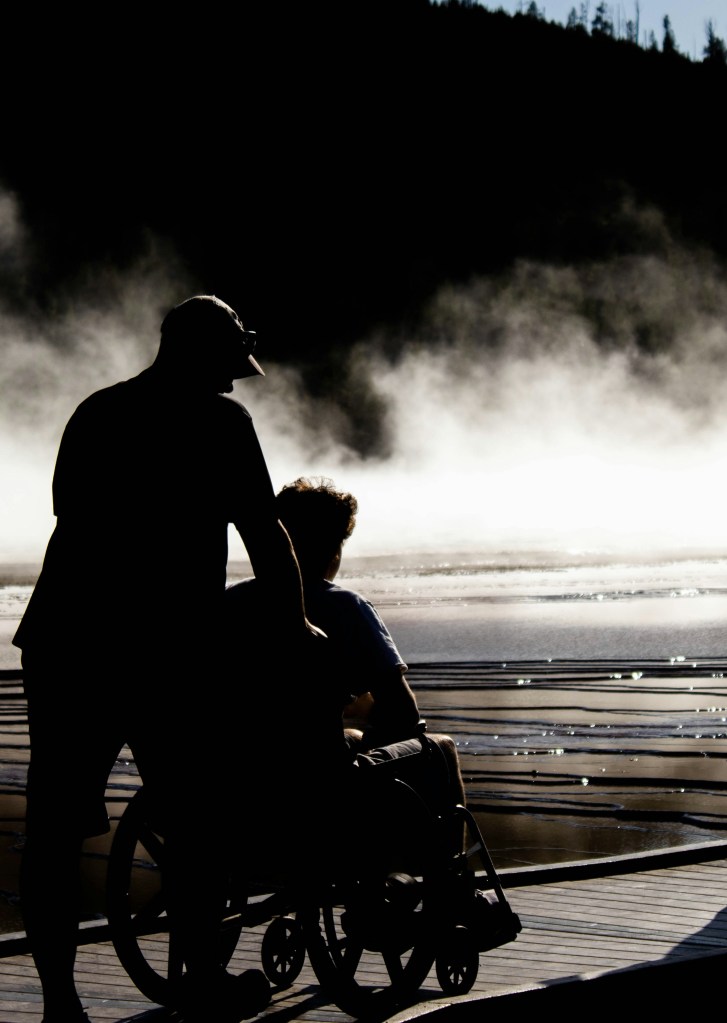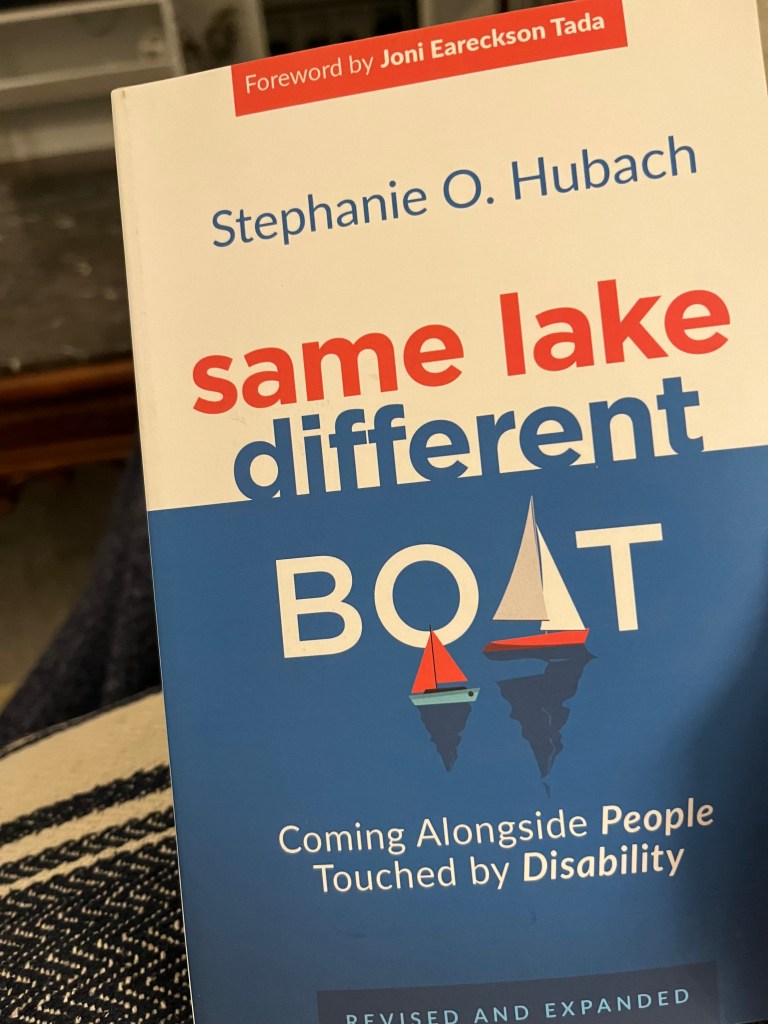
“difficulty is a normal part of life in an abnormal world.” -Stephanie O. Hubach
We live in a fallen world. As much as we may try to keep this reality at bay, it is evident in our culture, current events, and even in ourselves. Since we all bear God’s image, unbelievers also recognize things are not as they should be. They seek to create a human utopia through climate change, man’s sense of justice, or any other philanthropic endeavor to turn the world’s axis right again. Others may bend under resignation, with a fatalistic mentality, and live just for themselves- eat, drink now and be merry.
But neither of those options are any good. Mere outward reform and indulgence are fleeting. As Christians, God calls His people to engage others while still trusting in His Sovereign plan. “He has showed you, O man, what is good. And what does the Lord require of you? To seek justice, love mercy and to walk humbly with your God” (Micah 6:8). How are Christians living out this mandate right in their own backyard? It can take many forms because the needs around us are many, as we experience life in a broken world. Believers are called to be Spirit-led when serving, as God directs our hearts in the work He has prepared for us (Ephesians 2:10). All Christians are called to be the hands and feet of Christ in whatever capacity, gifts and ability God has given them.
In her book Same Lake, Different Boat, Stephanie O. Hubach argues for the Church to recognize the need for ministering to the disabled. Disability is a broad term which includes physical, intellectual, developmental, mental or sensory. Under this umbrella consist people with autism, blindness, deafness, spina bifida, Down syndrome, multiple sclerosis and cerebral palsy, to list a few. Besides the fact that God commands us to care for the least of these, meaning those who require the help of others long term or short term, one might ask, “What does this have to do with me?”
Before my son was born, the special needs world was not on my radar. It wasn’t that I didn’t care, it just didn’t affect me personally, nor did I know many people who were disabled. Then the Lord lovingly assigned it to me. Now I see a need which mostly flies under the radar, because those with disability typically need an advocate. Advocacy normally falls on the parents or caregivers, who already have a limited supply of energy and time. Their net covers just the one in their care, not spreading out to the larger disabled group. This is a great opportunity for outside help, particularly in the Church. Back to the question, “What does all this have to do with me?” Well, when we remember our own brokenness and the free grace which has been lavished on us, it should prompt every Christian to turn around and offer acts of mercy to a hurting world. We tell others the Gospel by also showing it to them. Hubach puts it this way:
“The first thing that motivates us to identify with others is a proper perspective of ourselves. “Do not think of yourself more highly than you ought” (Romans 12:3). We must recognize that we all have needs- that is a normal part of life in an abnormal world. Our brokenness and vulnerability as humans is universal; how it manifests itself is variable. Same lake, different boat.”
Just as Christ acted on behalf of every redeemed sinner in the most monumental, supernatural work of atonement, Christians are called to serve others sacrificially, although imperfectly.

If you agree that Christians have a responsibility to bless and serve the overlooked or forgotten, but don’t know how to help, here are a few suggestions. A good starting point is in your local church. Is there a Sunday school class offered for special needs that you can help with? Or perhaps there is a need for care during the main worship? Some with special needs may not be able to sit for an entire service, or will make involuntary disruptions such as noises or hand flapping. This can cause the entire family to feel self-conscious, not to mention distracted as they try to participate in the service, while keeping their loved one quiet. What a blessing to be able to minister to the family by providing a space where their loved one is cared for, so they can focus on the sermon and receive spiritual nourishment.
Another way to minister to someone with a disability is to look in your community. There are care facilities and special needs sports/art/music/camp programs which I’m sure would love more volunteers. I have found over the years that I receive possibly more encouragement than the ones I attempt to serve when taking part in the special needs world.
Although the building itself is not the church, but the people inside it, the structure of a church can be very beneficial in welcoming those with special needs. Does your church facility accommodate those with disability by making the entrance handicap accessible, providing a family restroom for diapering needs, or have an unused quiet room for when a sensory overload meltdown occurs? Are these things in place or do they need to be implemented? The way a church does or does not provide accommodations speaks volumes on whether the welcome mat is laid out for special needs or pulled up tightly. A church can unknowingly act like a country club by passively excluding those who are different, or make its members uncomfortable. The function of a church operates out of its particular culture in what it values, not what it says it values, but actually does.
Are there persons with special needs who regularly attend your church? Are they an integral part of the body or kept on the fringe? Is your church missing this vital role? Please don’t misunderstand the reason for this post. My goal is not to pile on a guilt trip. These are however, good questions to consider by bringing awareness in an area of ministry that might need attention. What a great opportunity the church has to show the love of Jesus to this particular group. We are made up of the body of Christ and need each part. “The eye cannot say to the hand, “I don’t need you!” And the head cannot say to the feet, “I don’t need you!” On the contrary, those parts of the body that seem to be weaker are indispensable, and the parts that we think are less honorable we treat with special honor. And the parts that are unpresentable are treated with special modesty, while our presentable parts need no special treatment. But God has combined the members of the body and has given greater honor to the parts that lacked it, so that there should be no division in the body, but that its parts should have equal concern for each other” (1 Corinthians 12:21-25).
A word of encouragement to someone who feels intimidated in serving people with disability. That’s okay and I think normal. Those who take the care of others seriously will have a bit of trepidation. We don’t want to add to their burden by our ignorance in how their medical equipment works, or how difficult it might be to relate. I have no educational background in special needs. I’m just a mom who knows her son. The vast spectrum of disability and my lack of knowledge overwhelms me too! But here’s the good news. We don’t have to do any of these things in our own strength. That isn’t just a pretty little saying, but absolutely true to those who claim it by faith. God will give wisdom and help as we ask for it. The needs will vary in a case by case situation, but God has promised to provide the grace and strength we need for this day, to carry out the work He has given us for this day. With that said, it is my hope that those with a disability and their families will be gracious receivers, knowing we are imperfect and may not get it right the first time.
Ministering to those with special needs is an opportunity to become more prayerful and Christ dependent, rather than go rogue and seek only outward reform. The point of inclusion for special needs families is ultimately to point them to Christ, just like everyone else. This is the heart need every soul longs for. Do they belong too?

Stephanie O. Hubach’s book Same Lake, Different Boat has greatly ministered to me. She is a parent of two boys, one with Down syndrome. Hubach has insight, practical wisdom and Biblical encouragement, beneficial for every Christian whether you are directly affected by special needs or not. As Christians we are called to come alongside those who are in need, like those touched by disability. I appreciate how Hubach does not come across as demanding, angry or self-pitying in her experience and analysis. She shoots straight with a heart of compassion and a dose of humor.
We are solution oriented people. If something cannot be fixed or improved upon, our tendency is to shy away instead of lean in. It is not wrong to try and make things better. As image bearers, one aspect of this is healing. But the kind of healing Christians can most meaningfully co-labor with God in is spiritual. We bless others when we truly see them with dignity as fellow image bearers. We likely cannot fix the visible disability, but we can be a friend. Believers can demonstrate the Gospel by speaking up for the weak, serving in kindness, laced with humility toward those the world does not highly value.
Hubach speaks of the worth of each person as the starting point to understand the reason we serve others by saying,
When the image of God within is central to our understanding of humanity, it sends a powerful message about human value to the world around us. Our culture often measures personal value as a function of productivity. The degree to which we are able to contribute to society is the degree to which we are valued. In God’s economy, however, human value is defined by the Creator Himself through the imprint of His image in humankind. Others take notice, not merely when we say this is true, but when we live like it is true in respect-based relationships. Our actions ought to declare, “You are incredibly valuable!” to everyone we meet.
In the same way, the powerful message of the gospel is demonstrated when we respond to others in grace-based actions. Our competitive culture is uncomfortable with weakness. When people see us acknowledge our frailties and intentionally engage others in the areas of their brokenness, we live out the gospel of grace in powerful ways.
This kind of service bears fruit that is pleasing to God. This kind of healing when God is at work is of eternal value. May God direct all of our hearts in His love as we do His kingdom work, persevering in His strength.
Grace upon grace,
April
Here is a helpful link in understanding the statistics of children and adults with special needs in the Church, as well as how their families are impacted.
Growing deeper: Matthew 25:31-46; Romans 12:1-16; 1 Corinthians 12:12-26; Proverbs 3:5-6; 2 Thessalonians 3:5





